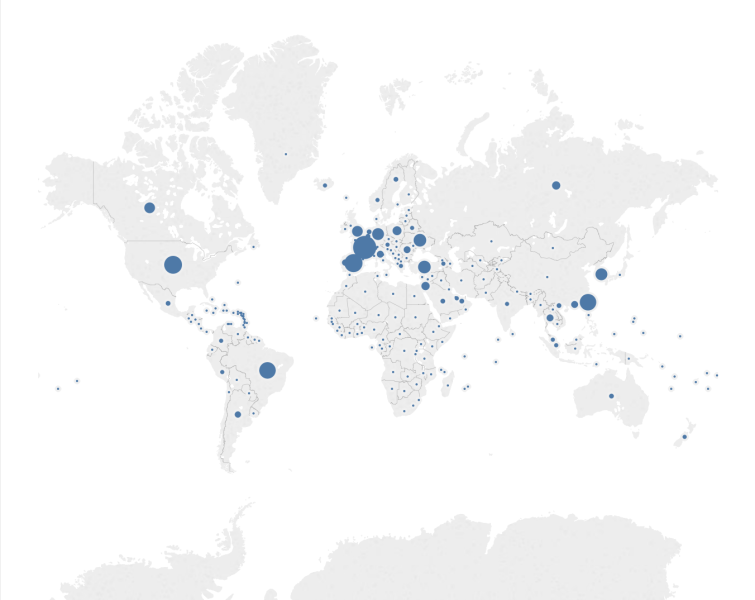
All the sessions from Transform 2021 are offered on-demand now. Watch now.
Microsoft today announced that it acquired Peer5, a startup establishing platform to optimize bandwidth usage by means of mesh networking technologies. The terms of the deal weren’t disclosed, but Microsoft stated that it would use Peer5’s services to improve live video streaming in Microsoft Teams.
Companies are increasingly relying on streaming to interact with their workforce and handle the new world of hybrid work. From business-wide trainings to all-hand meetings and town halls, broadcasts are becoming essential for engaging with workers. Indeed, as live streaming becomes more frequent in the workplace, significant organizations are turning to enterprise video streaming options that scale. Global Market Insights predicts that the videoconferencing industry will develop 19% involving 2020 and 2026, reaching $50 billion in worth by 2026, and Zoom alone now hosts 45 billion minutes of webinars a year.
Palo Alto, California-based Peer5 focuses on the tech underpinning these forms of streaming options. The business, which was founded in 2012, operates what it claims is the world’s biggest peer-to-peer content delivery network.
“As Microsoft Teams has become the primary communications and collaboration platform for many of our customers, they’ve asked us for more integrated … solutions for large-scale meetings and virtual events,” Nicole Herskowitz, basic manager for Teams, wrote in a weblog post. “Peer5 … expand[s] our ability for delivering secure, high-quality, large-scale live video streaming with optimized network performance in Teams.”
eCDN
Peer5 delivers what’s referred to as an Enterprise Content Delivery Networks (eCDN). In a nutshell, eCDNs can alleviate congestion in corporate networks to provide enhanced video streaming and broadcasting for significant audiences of workers.
Peer5 particularly delivers a WebRTC-based eCDN framework that runs in-browser to optimize bandwidth usage, with self-balancing mesh networks that automatically scale as the quantity of viewers boost. The technologies does not need installation on endpoint machines and can be deployed devoid of modifications to physical network infrastructure.
Prior to the acquisition, Peer5, which raised $3.5 million in venture capital from investors such as FG Angels, claimed to have powered live events with as several as 2 million concurrent customers. To date, the startup’s item has been utilized by more than 1 billion customers.
“When many employees stream at the same time, the network gets congested. Our technology solves this problem in the most efficient way possible, without changing the existing network infrastructure,” Peer5’s Weiss stated in a statement. “Peer5 is integrated together with the video player so it is enabled instantaneously for every employee within an enterprise. We push the envelope even further by adding logic and mechanisms that adjust to any device and any network without requiring any custom setup from the customer side.”
Herskowitz says that Peer5 answer will let Microsoft to provide a initially-party eCDN supplying in the future. (Current Peer5 buyers will be in a position to continue employing Peer5 services.) However, Microsoft also plans to continue supporting eCDN options from its certified partners in addition.
The expansion of Teams by means of Peer5 comes as Microsoft’s videoconferencing service reaches 145 million everyday active customers. Recently, the business introduced features like Fluid elements, which let chat customers to send a message with a table, action products, or lists that can be coauthored and edited by absolutely everyone in line. Teams’ new shared stage integration delivers developers access to the key stages in meetings by means of a configuration in their app manifest. And meeting occasion APIs, launched in preview this spring, allow the automation of meeting-associated workflows by means of events like meeting commence and finish.
Teams will also be natively integrated with the upcoming version of Microsoft Windows, Windows 11.


/cdn.vox-cdn.com/uploads/chorus_asset/file/25408356/VST_0419_Site.jpg)



